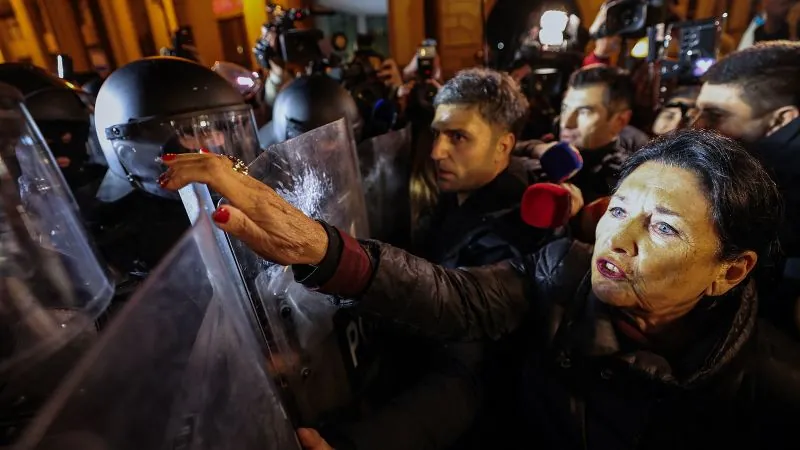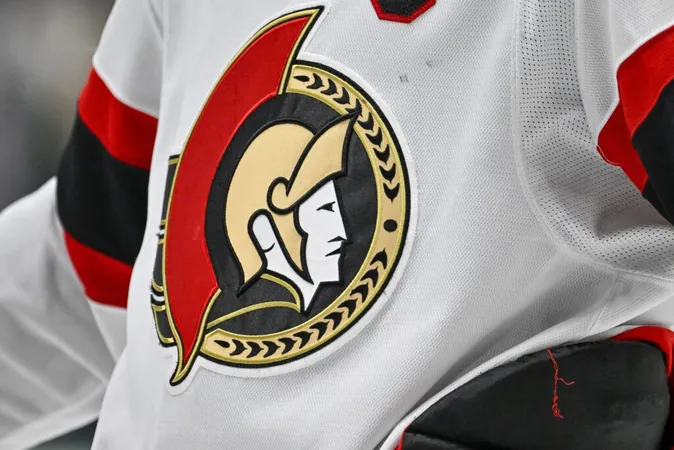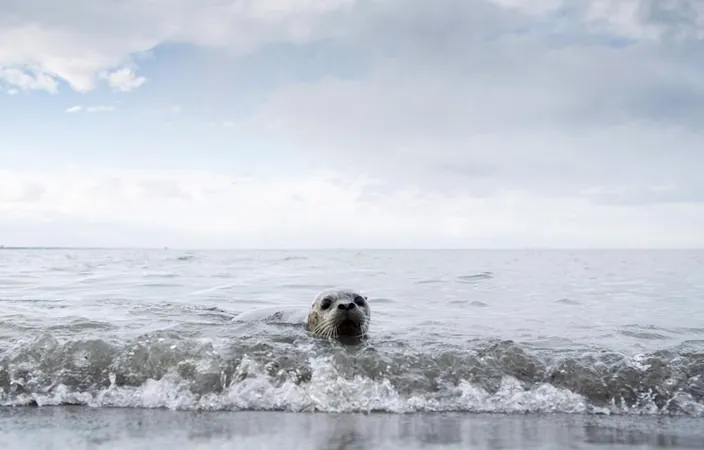
Chaos Erupts in Tbilisi as Georgia Halts EU Membership Talks—What's Next for the Nation?
2024-11-29
Author: Benjamin
Overview of the Situation
Tensions escalated dramatically in Tbilisi, Georgia, as protesters clashed with police early Friday morning following the ruling party's shocking announcement to suspend talks on European Union accession and refuse any EU financial grants until 2028. This decision has sent shockwaves throughout the nation and revived concerns about its democratic trajectory and relations with the West.
Protests and Government Response
According to the country’s interior ministry, at least three police officers sustained injuries amidst the chaos. Law enforcement officers deployed water cannons and unleashed pepper spray and tear gas to disperse the crowd, while some protesters, angered by the government's actions, attempted to breach the parliament building. Shouting slogans such as 'Russians!' and 'Slaves!' demonstrators retaliated by launching fireworks toward the police.
Deteriorating Relations with the EU
Relations between Georgia and the EU have hit a low point recently, with the EU accusing the Georgian government of increasingly authoritarian tactics and adopting pro-Russian policies. Thousands of citizens took to the streets in Tbilisi expressing their pro-European sentiments before the confrontation erupted. Georgia's figurehead president vehemently criticized the government, accusing it of declaring 'war' against its people and questioning police officers about their allegiance—whether to Georgia or Russia.
Ruling Party's Stance
In a surprising statement, the Georgian Dream governing bloc denounced the EU's approach, accusing it of a 'cascade of insults' and claiming that the EU was using the prospect of joining as a means of 'blackmail' against the country. The ruling party declared, 'We will not place the issue of EU negotiations on the agenda until 2028', marking a significant shift in the political atmosphere of this pro-Western nation.
Public Sentiment and Opposition
Georgia's constitution enshrines its EU aspirations. However, recent months have seen relations with Brussels deteriorate, resulting in the EU putting Georgia's membership application on hold. The government maintains that it is not pro-Russian and pledges commitment to democratic values and eventual EU integration, but critics argue that it is increasingly leaning towards Moscow.
Polling data reveals that about 80% of Georgians support EU membership, and the EU flag is prominently displayed alongside the national banner at key government sites. The opposition has voiced outrage over the government's announcement, leading to protests throughout other cities in Georgia.
Leadership Criticism
Prominent opposition leader Giorgi Vashadze took to social media to condemn the ruling party. President Salome Zourabichvili, known for her pro-EU stance, characterized the actions of the ruling party as a declaration of 'war against its own people, its past, and future'. With her term set to end in December, concerns linger as Georgian Dream has nominated a successor with hardline views against Western alignment.
Political Unrest and Elections
The disputed October elections have further fueled political unrest, with opposition claims of widespread fraud leading to their boycott of parliamentary seats. In contrast, both Georgian Dream and the election commission maintain that the elections were legitimate.
Economic Concerns and Future Prospects
Adding to the turmoil, Prime Minister Irakli Kobakhidze suggested that EU integration might harm Georgia's economy, potentially jeopardizing existing visa-free arrangements and trade agreements with other nations. Although the EU had granted candidate status to Georgia in December 2023, the bloc criticized subsequent legislation perceived as authoritarian, including measures targeting 'foreign agents' and limitations on LGBTQ rights.
Criticism of the Ruling Party
Critics of Georgian Dream assert that the ruling party, led by the billionaire ex-Prime Minister Bidzina Ivanishvili, is steering the country back into Russia's orbit—an alarming prospect for a population that largely resents its northern neighbor. Georgia and Russia have had no formal diplomatic relations since a brief war in 2008, although a limited rapprochement has emerged recently.
International Reactions
Amidst all this turmoil, Russian President Vladimir Putin praised the Georgian authorities during a visit to Kazakhstan, commending their 'courage' for enacting controversial foreign agent laws, which many believe are reminiscent of similar Russian legislation.
Conclusion and Future Outlook
As Georgia's future hangs in the balance, what will be the repercussions of its government's latest decisions? The people of Georgia are determined to make their voices heard, but the path forward remains clouded by uncertainty and geopolitical complexities. Stay tuned for further developments on this evolving story.









 Brasil (PT)
Brasil (PT)
 Canada (EN)
Canada (EN)
 Chile (ES)
Chile (ES)
 España (ES)
España (ES)
 France (FR)
France (FR)
 Hong Kong (EN)
Hong Kong (EN)
 Italia (IT)
Italia (IT)
 日本 (JA)
日本 (JA)
 Magyarország (HU)
Magyarország (HU)
 Norge (NO)
Norge (NO)
 Polska (PL)
Polska (PL)
 Schweiz (DE)
Schweiz (DE)
 Singapore (EN)
Singapore (EN)
 Sverige (SV)
Sverige (SV)
 Suomi (FI)
Suomi (FI)
 Türkiye (TR)
Türkiye (TR)